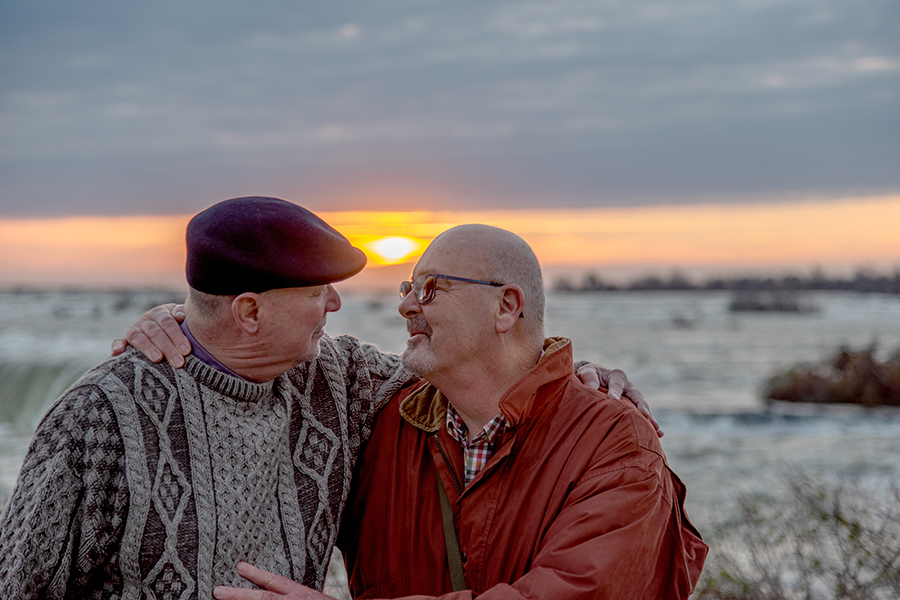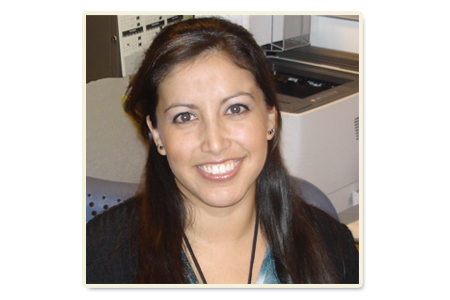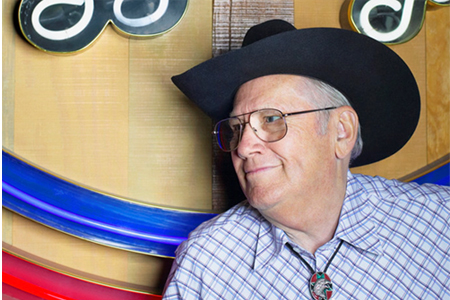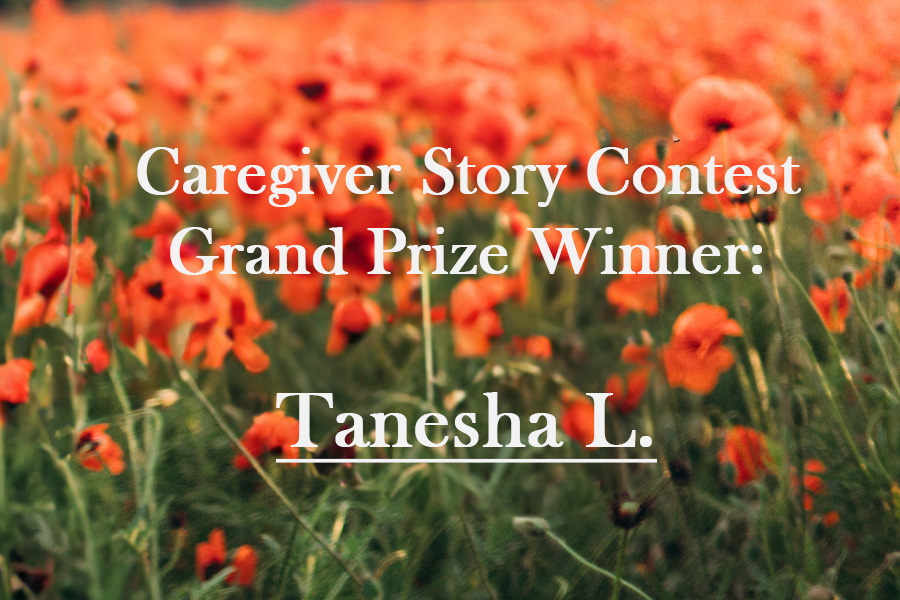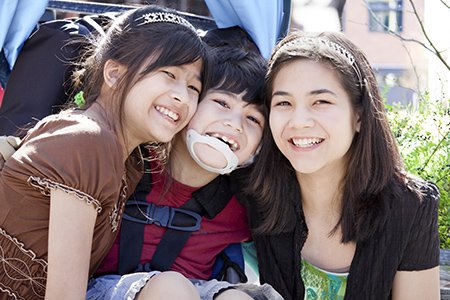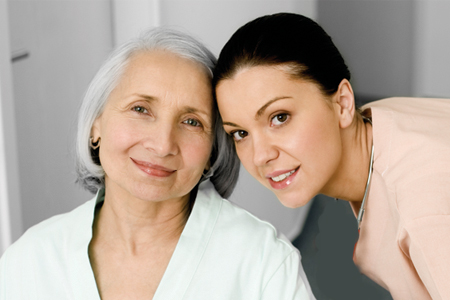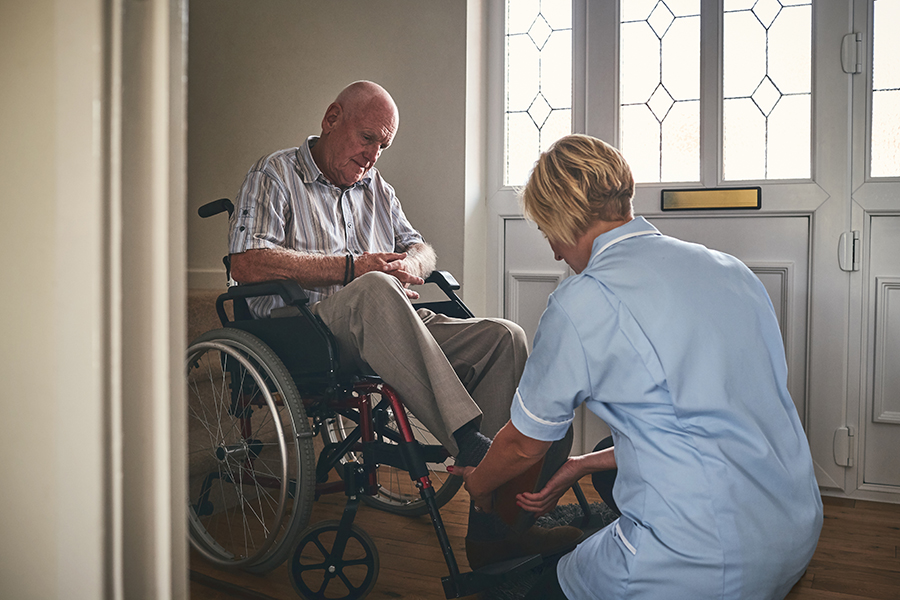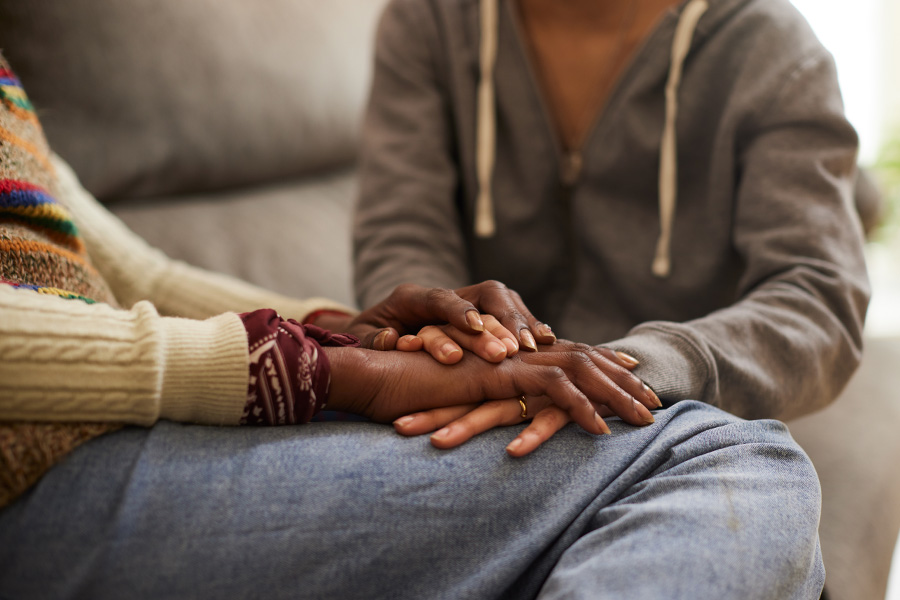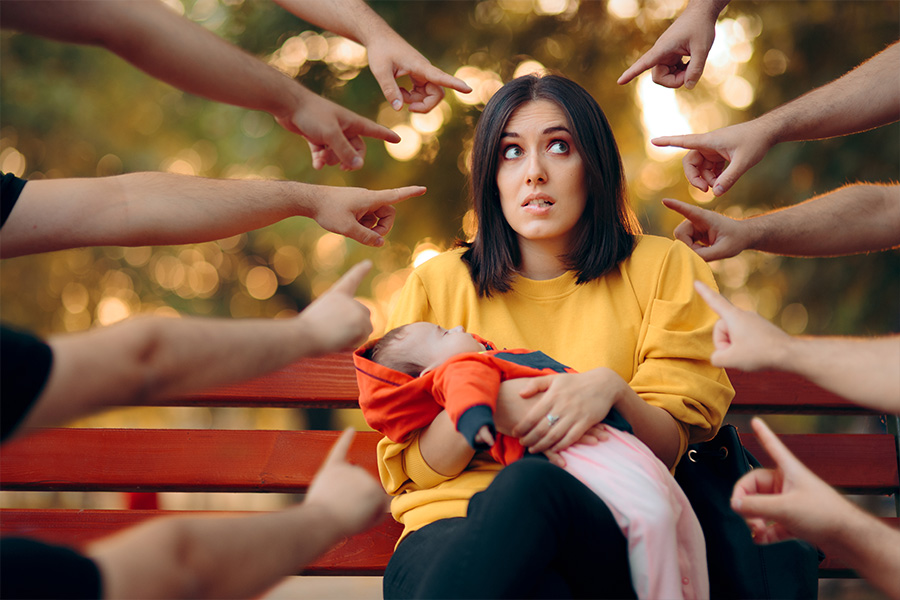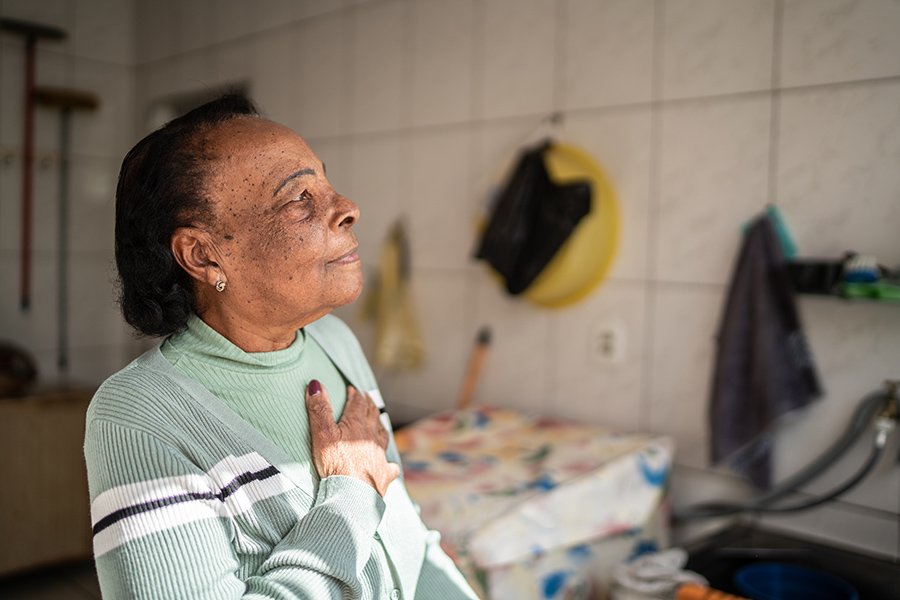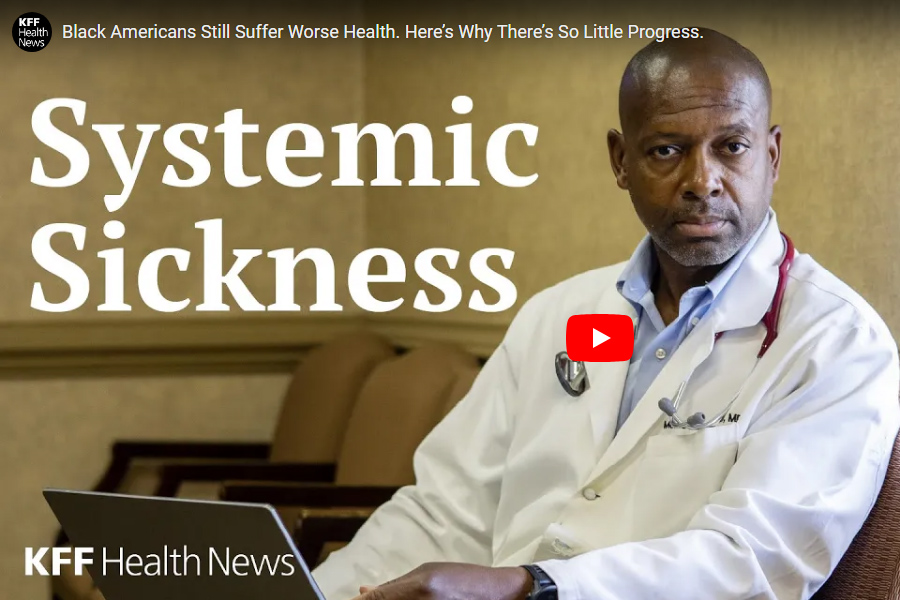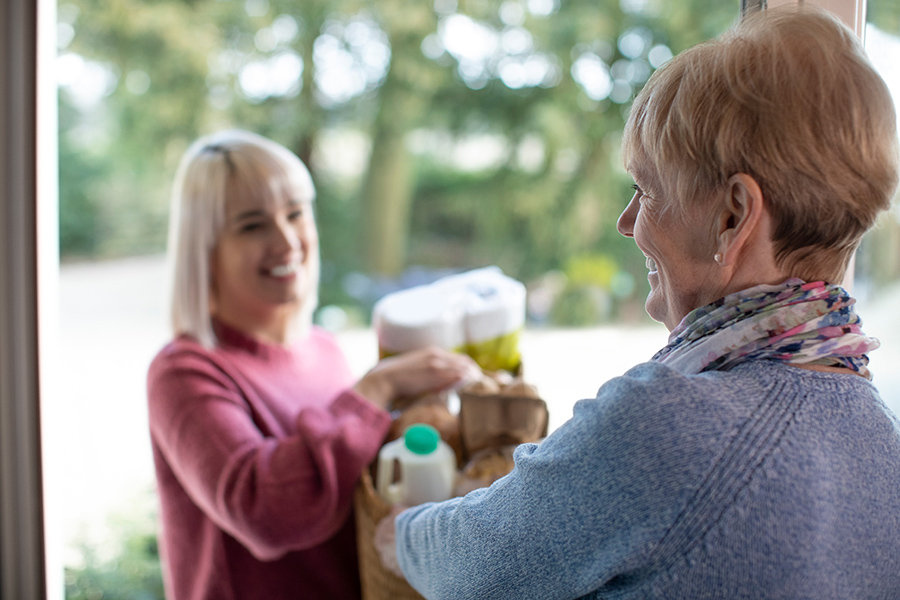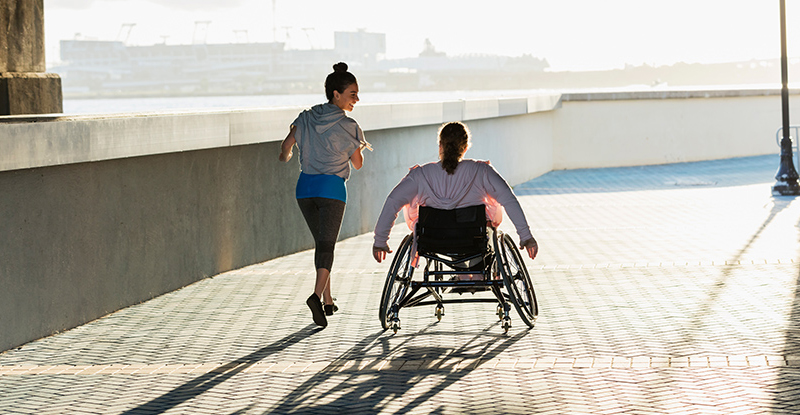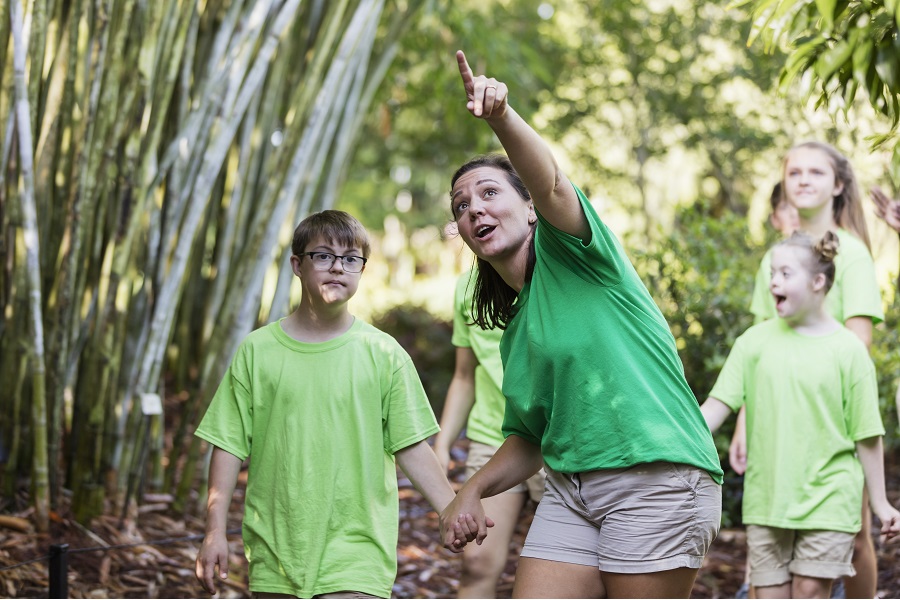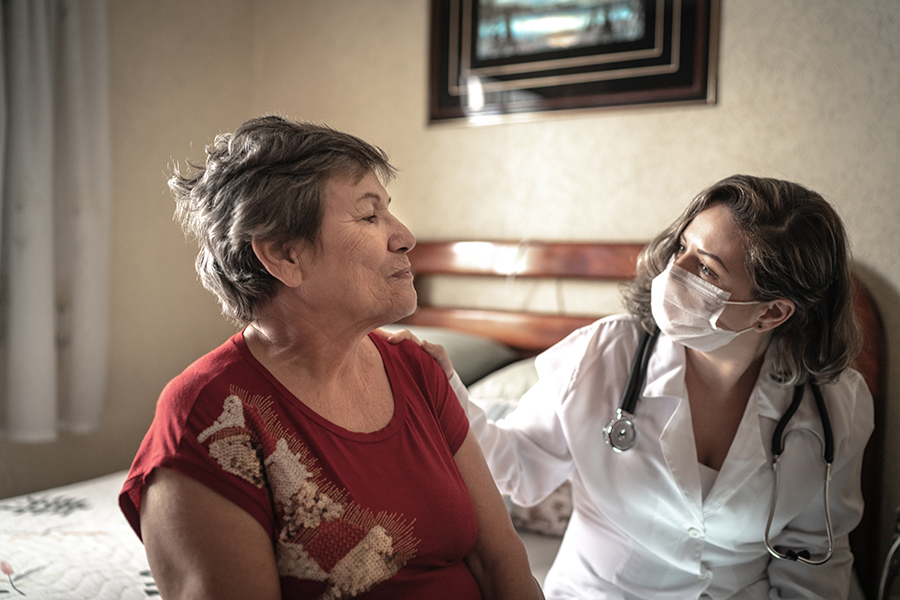By 2030, there will be more than 7 million LGBTQ+ Americans over 65. Like all Americans, many will find themselves in the role of caregiver for a loved one. But they may face some challenges that others do not. Many will be caring for someone who is not a family member. Numerous LGBTQ+ older adults may have severed ties with their families of origin or outlived them. And many LGBTQ+ elders did not have children, who would be their logical caregivers in their old age.
According to caregiver.org, two-thirds of older LGBTQ+ adults consider their friends their chosen family. Are you or is someone you love an LGBTQ+ caregiver? You can find support as a caregiver through caregiver.org. For questions about legal issues as an LGBTQ+ caregiver, start here.
The two stories below illustrate the challenges and joys that LGBTQ+ caregivers face while pointing to the fact that all caregiving requires patience, kindness, and, most of all, love.
Caring for a Partner: Gary Posner,* 70, New York City
*Posner asked that to protect his and his partner’s privacy, real names not be used.
I fell in love with Phil* 26 years ago — several years after I lost my first partner to AIDS. Ours was a very stable and monogamous relationship. We always saw each other, swapping weekends at his place and mine. We finally decided that we should move in together.
He gave me so much in those first years. I learned so much, and I enjoyed our relationship immensely. Around 2014, a shooter marched into Phil’s workplace and opened fire. One of Phil’s closest work friends was killed. That launched him into depression and post-traumatic stress disorder (PTSD), which he has not escaped. He has not worked since.
Phil was good at doing things around the house. He just knew how to do everything. But it’s difficult for him to find the motivation to do it. Most days, he doesn’t get out of bed. One of the things about being depressed is that you’re extremely sensitive. So, if I withdraw (which I have, really, too often) it’s a hurtful, bad message for him. And that makes me feel guilty.
I do my best to take care of myself to take care of him and the dog. You know how they say that you have to put your oxygen mask on first? As a caregiver, I make sure that he eats. We try to eat dinner together. I’ve never been good at cleaning, but I do what I can, and I’ve had to hire somebody to clean.
When I bought our apartment, the agreement was that I’d pay the mortgage, and Phil, now 60, would pay the maintenance. Well, that didn’t pan out. He’s done everything he possibly could to address this depression. He’s done everything — all the meds, alternative treatments, therapy. Nothing has worked. He wants to get better, but it’s been tough.
Lack of Support
Phil was close with his parents, and we all used to hang around together. They have both now passed away, which compounds his depression. He is still grieving their loss.
I have not found support for caretakers — except for groups that want to tell you how to be a better caretaker. I don’t need that — I’ve been a caretaker my whole life. I struggle with having some support for the problems caretakers face.
As caretakers, we have to work hard not to get pulled in. We know that if we get pulled into sadness and depression, there’s no hope. When I feel that I’m getting swallowed up by it, I have to double down on exercise and ensure I see my therapist.
There have been times when I’ve felt trapped. And it’s been tough. We’ve been together so long. Separating would be nightmarish. And not beneficial to either of us.
I’d love to find a support group for people in the same situation as me — to talk with people who understand. And if there were such a thing, I would undoubtedly feel more comfortable if there was a gay group. I say that because my experience (and many of our experiences being gay) is not to be understood and be cautious about vulnerability.
I’m a recovering alcoholic drug user from way back — I certainly valued a mixed AA meeting, but I felt much more comfortable and safer in an all-LGBTQ meeting. Although people’s attitudes have changed, part of me still feels that you don’t get it unless you walk in my shoes.
A Need to Speak Openly
I think that many LGBTQ people are natural caretakers. They just have a great capacity to take care of others. And the truth is that many of us became caretakers because we thought that if we cared for others, people wouldn’t find us disgusting; they wouldn’t hate us or push us away if they knew we were gay.
So, I always cared for people because I feared that if I didn’t, there would not be care or love for me. After all, I had this dirty, nasty secret. I’d like people who read this to understand that others are going through this. And that there are many choices you can make in this situation.
People have to figure out what’s the healthiest for them — and what they can do to live a life that feeds them some positivity. Can you travel, take vacations, visit friends and family for a short getaway? Caregivers tend to think the people we care for can’t do without us. We do everything for them — but you can make things worse by sacrificing yourself.
I love to speak Italian, and I’m taking some courses online, trying to exercise every day and grabbing lunch or dinner with friends occasionally. I also try to be open with what’s going on with my partner. By doing that, I gain support.
I once heard at an AA meeting that you’re only as sick as your secrets. And that’s very crucial. You can’t be ashamed of what’s happening — if you speak with people openly, you get what you need to feel supported.
Caring for a Friend: Steve Kotsines and John Hecht, St. Louis, Missouri
John: I met Fran 40 years ago. She was dating Cindy, a friend of mine. And even though they broke up, we all remained friends. Fran was an engineer (and in management) at Emerson, a technology company in St. Louis, and was very successful. But in 2010, she approached me because she’d been diagnosed with ovarian cancer and asked me to be a durable power of attorney. On top of that, in her 30s, she had been diagnosed with osteo- and rheumatoid arthritis. And as a result of the high-powered chemo drugs she was taking, she could no longer take the drugs for her arthritis. This, along with the cancer, took a toll on her. In the decade that followed, her mobility suffered.
Steve: But her diagnosis in 2010 of ovarian cancer pulled together the village of caregivers who would care for her for the next dozen years. She was actually in a suburb, and we (and Cindy, whom she affectionately referred to as her favorite ex-wife) were in St. Louis, about 35 minutes away. Her neighbors would often be called in to help because of her mobility issues.
John: Oh yes, the neighbors were instrumental. But she had so many friends — many of them were nurses who could make recommendations on things. But we had to step in in the last few years of her life.
Steve: John was, as I say, her gay husband; because of the environment she worked in, she needed to have a man by her side, and that was John. And so, their relationship was extremely deep. And, I came along. John and I have been together for 36 years, and Fran was like my big sister. She would buy me underwear for my birthday! Stuff, you know, that family does for each other. We were her family of choice. She had a half-sister that she was estranged from, and her parents had been gone for years. Fran had a life filled with her family of choice. And within that family of choice, a few people emerged as the ones who were always there and gave her the kind of guidance you often get from either your father or your siblings.
John: As we said, her neighbors were great, but a few years ago, they contacted me and Steve and asked for an intervention. Fran was having a lot of falls, but she wasn’t telling us about them. It was also during COVID. The social isolation just really took a toll on her. And then she got in a car accident. We were never sure what happened, whether she swerved to hit an animal or something else, but she was in the hospital, and we knew she needed to go to rehab. She refused. And then we thought that she needed full-time help.
Steve: That’s when the neighbors said, ‘Well, because of the pandemic, you haven’t been in her house for a while. You can’t even walk around in there.’ She was a hoarder, and we could not bring someone into the house to care for her. We got the house cleaned up enough to get her home. But there was more to do.
John: So every weekend, we would go to the house and start clearing it out. We were purging. She fought me tooth and nail, but we did get the home and the garage cleaned out (and over the next year, she managed to fill up the garage again!) But she did keep the house so there weren’t tripping hazards.
Steve: When we had to figure out the home health aide, one of Fran’s friends helped us identify which agency to go to where we would find someone who would be good to work with a gay woman. Fran was lucky that she had so many friends in the health care profession. But she was an obstinate woman, and John and Cindy often had to negotiate with her about various health decisions, and it was not always easy. But she made clear that she did not want to leave her home. By then, she was 75. And she had a big dog! Fran’s aide, Roz, became her friend. When auditing her finances, we saw that Fran was giving her money and helping her out.
John: Fran died on October 4, 2022; we think she had a heart attack at home. She was not taking care of herself, and we could only do so much to ensure she did.
Steve: We’ve experienced a complex and beautiful person. We all loved her, and we miss her greatly. Caring for her was complicated sometimes, but we all just cooperated. Especially in the last three years, we all started fact-checking each other. “Fran told us this, what did Fran tell you? What are we going to do about this? Okay, well, Cindy this is what you’re going to do; John, you’re doing this,” and I would do something else.
John: Fran had delegated this group of friends to take care of things, and we didn’t mind doing it. And many times, other friends reached out to see if they could help too. We’ve worked on finishing up her estate. And her ashes are in an urn on our kitchen island. We haven’t decided yet what we’re going to do with them. But she’s there with us, and we often talk to her. Why not?
Read original article on nextavenue.org.






